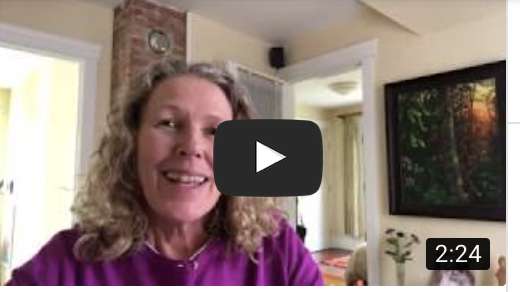Completion seems to be in the air. This past Sunday I helped my housemate, Barry, with the final move-out from his house on Keats Island. This was the last goodbye to a house he had owned with his former wife, Bridget, for 10+ years. Our dear friend Mo came with us. She had some boxes to retrieve from Keats as well—the final few things from a previous relationship that had ended more than a decade earlier.
There is no vehicle ferry to Keats so the three-ton truck Barry rented had to get barged over from Gibsons Landing—a fifteen-minute crossing that was a little more adventurous than I expected. We were completely safe, with an experienced skipper at the helm, but the novelty of being in a little boat pushing a large barge with a big truck on it in the pouring rain got my attention.
There is something quite poignant about saying goodbye to the end of an era. And returning somewhere after a long absence is always a good reality check. How do I feel, walking this land I once knew so well? What do I need to do or say to be complete with this part of my life?
My recent visit to the west coast was the completion of a long separation for me—from that particular part of the world, from a particular part of myself, and from my brother, Marc. Up until then, it was as if a big chunk of me was placed in homeostasis. I wasn’t consciously aware of this, though I knew my feelings were conflicted. I had some work to do before I could get complete.
I became more aware of the power of completion during my training a few years ago with Integral Coaching Canada. A Completion Conversation is an essential component in any ICC coaching program and they offer the following guidance: A Coaching Program is complete when the coach and client declare that it is complete. What defines “complete” is unique to each situation.
An ICC Completion Conversation starts by fully registering all that has been accomplished during our time together. We then look ahead to discuss what possibilities and challenges the client may face moving forward. Lastly, we acknowledge what we deeply appreciated about each other and say whatever we need to say to be complete with the work we’ve done together. It is a powerful and meaningful exchange.
Landmark offers a similar distinction—that completion is a declaration. This personal development organization stresses that complete is not the same as finished. It’s possible to complete something even if we haven’t finished it. And completion is not necessarily a one-time thing. We may not have been able to have the conversations we wanted to have with the important people in our lives, but we find our own ways to become complete.
I like these words from Melinda Parris, a former Landmark Introduction Leader, responding to the question of what it means to be complete. In large part, being complete is about being in integrity. Integrity, not in the moral sense, but in the sense of wholeness.
Barry and Mo each completed a piece of their pasts last weekend on Keats. My last two blog posts described my time on the west coast and the long hiatus I brought to a close. We are all, each in our own way, now standing on new ground. There may be more layers to address in these realms moving forward (I’m sure there are for me) but for now, this is what completion looks like.
Completion allows us to create a future that is unencumbered by the past. It creates a space for speaking about and claiming accomplishments. It allows for an ongoing condition of integrity. And it allows for a whole new field of possibility to emerge.
Is there a piece of your past that feels incomplete? Let me know, I’d love to hear!


0 Comments